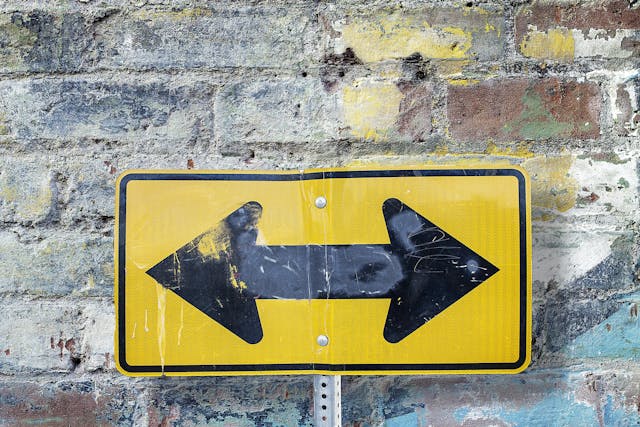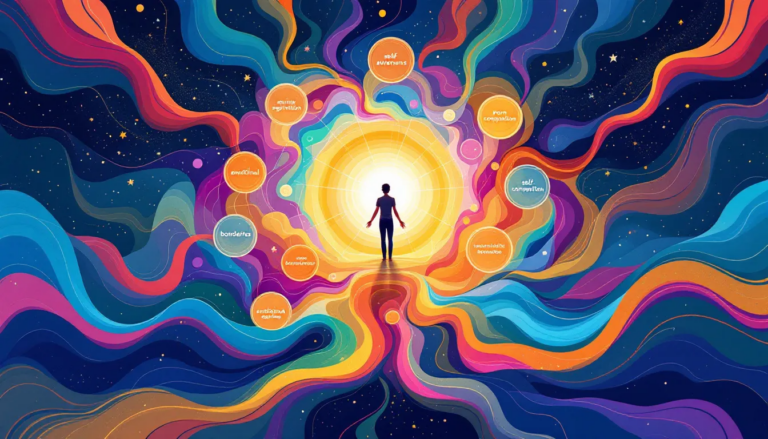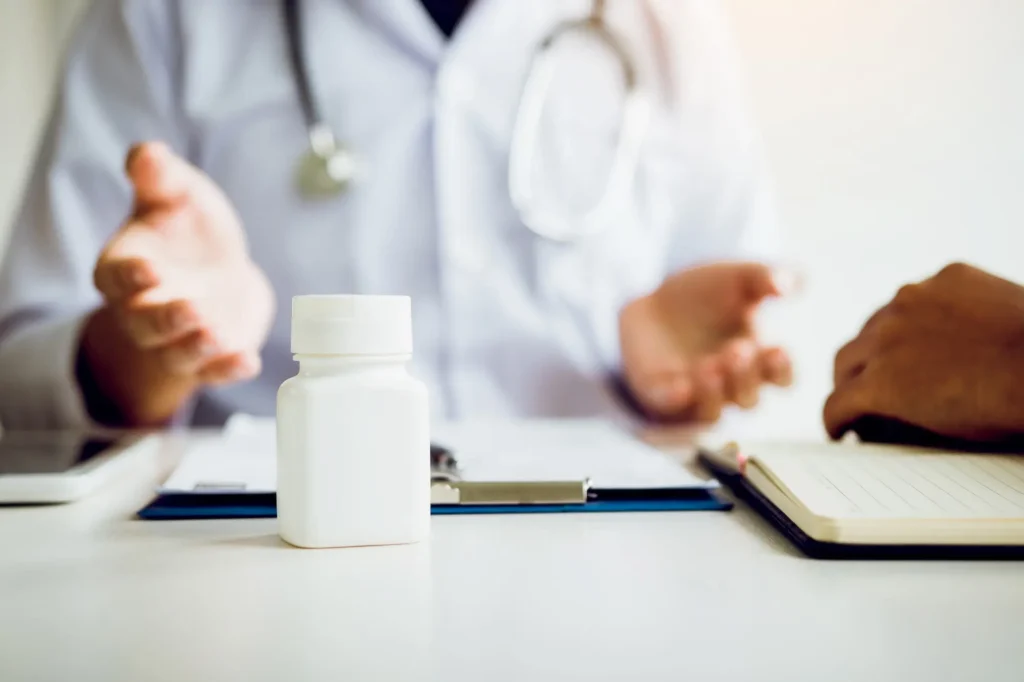Struggling with porn addiction and seeking ways to overcome it? This guide will provide you with practical strategies on how to stop porn addiction and regain control of your life. Learn about understanding your addiction, recognizing the signs, finding support, and building a healthier lifestyle.
Key Takeaways
Porn addiction is a behavioral addiction that significantly impacts personal relationships, mental health, and overall well-being.
Effective strategies to combat porn addiction include removing access to pornographic material, developing healthy coping mechanisms, and establishing a support system.
Addressing underlying mental health issues and seeking professional help are crucial for long-term recovery from porn addiction.
Table of Contents
Understanding Porn Addiction

Addiction to pornography involves a relentless engagement with explicit materials, even when it results in detrimental outcomes. This behavior can inflict considerable damage not only on interpersonal bonds but also on an individual’s mental state and holistic health, potentially leading to disrupted relationships and intense personal distress.
Acknowledging the severity of such addiction is crucial for healing. Comprehending the nature of porn addiction helps craft successful approaches for addressing it. We will delve into what constitutes porn addiction, its underlying factors, and its extensive effects on both psychological well-being and physical health.
What Is Porn Addiction?
Pornography addiction is characterized by a persistent failure to cease watching porn, even with the desire to do so. This compulsive habit disrupts one’s work, personal affairs, and interpersonal connections. The compulsion often results in the abandonment of regular duties for pornography consumption. This type of behavioral addiction centers around an uncontrollable impulse to consume pornographic content that negatively impacts everyday life functions.
While pornography addiction isn’t formally recognized as a disorder within DSM-5 classifications, it falls under the umbrella term ‘behavioral addiction’ and can lead to repeated addictive behavior patterns. Common among young adult males, such addictions are fuelled by dopamine releases in the brain which reinforce ongoing engagement with pornographic material.
Causes of Porn Addiction
The emergence of porn addiction can be attributed to a range of factors that differ from person to person. Individuals possessing low self-esteem tend to have an elevated susceptibility to such addiction. The propensity for porn addiction is also heightened by mental health challenges and previous traumatic experiences. Conditions like PTSD, OCD, and ADHD are frequently linked with those struggling with porn dependency.
Factors including early exposure to pornography, unaddressed trauma, and external environmental influences substantially contribute as well. When someone watches porn, dopamine – the neurotransmitter responsible for pleasure – is released in their brain, establishing a connection between the activity and gratification, which paves the way for addictive behaviors.
The Impact on Mental and Physical Health
Addiction to pornography can intensify existing mental health issues, heightening anxiety and depression. Habitual engagement with porn often brings about shame, guilt, and frustration, which contribute to diminished self-esteem. An overindulgence in pornographic content has been correlated with the emergence of depressive symptoms.
On a physical level, habitual responses conditioned by exposure to specific stimuli found in porn may result in erectile dysfunction that hampers real-life sexual experiences. Ceasing consumption of pornography could lead to an improvement in sexual function as individuals retrain their response mechanisms towards actual sexual encounters. Being addicted to porn can disrupt sleep patterns leading to exhaustion and other forms of psychological distress.
Recognizing the Signs of Porn Addiction

Recognizing the indicators of porn addiction is crucial for embarking on a journey towards healing. People grappling with such an addiction typically experience a sense of helplessness and struggle to regulate their usage, even when it’s clearly affecting their lives adversely. Habitual consumption of pornography coupled with a persistent failure to cease these activities can be key signs that the addiction is dominating one’s life.
To initiate recovery measures, grasping these symptoms becomes fundamental. In this discussion, we’ll delve into the typical manifestations of pornographic dependency and evaluate how it disrupts personal life.
Common Symptoms of Porn Addiction
Typical indications of porn addiction consist of a fixation on pornography, an inordinate amount of time devoted to viewing it, and disregard for one’s duties. This condition may affect behavior by causing sleep deprivation, diminished work output, and a persistent desire for seclusion. These behaviors are often accompanied by porn addiction withdrawal symptoms.
People grappling with porn addiction frequently encounter intense emotional reactions, including feelings of guilt and shame. This cycle is characterized by:
elevated stress levels
momentary solace found in pornography
escalated stress from usage
intensified feelings of shame
Assessing the Impact on Personal Life
Addiction to pornography can interfere with different areas of an individual’s life, such as employment and interpersonal connections. This form of addiction engenders a pattern where people recede from social engagement, which in turn deteriorates their mental wellbeing.
Being addicted to porn can cause individuals to shirk intimate encounters and become defensive when issues are brought up by those close to them. It is typical for those trying to cut down on their consumption of pornographic material to experience erratic moods and increased irritability.
Effective Strategies to Overcome Porn Addiction

Recognizing the issue is essential for conquering addiction. Commitment, assistance, and potent methods are vital components for triumph.
Herein, we outline diverse successful tactics to assist persons in their quest to break free from addiction’s grasp, take charge of their lives again, and prevent a backslide into old habits.
Remove Access to Pornographic Material
Removing the availability of pornographic content can diminish direct temptations and stimuli, thus assisting in combating urges. It is essential to steer clear of websites that offer such material and terminate any related subscriptions to prevent accessing adult content.
Implementing blocks on your devices serves as an efficient strategy to obstruct access to explicit materials, which lowers the likelihood of coming across potential provocations.
Develop Healthy Coping Mechanisms
Participating in exercise, exploring new hobbies, and engaging in video gaming can be constructive substitutes for watching pornography. Implementing stress reduction strategies like meditation, performing deep breathing exercises, and recognizing negative emotions may aid in diminishing the compulsion to watch porn.
Employing beneficial coping mechanisms such as physical activity and seeking social engagement offers a valuable distraction and diminishes the impulse to engage in watching pornography, facilitating sustained healing.
Establish a Support System
It is essential to build a reliable support system for guidance and motivation while tackling porn addiction. To form this support structure, consider confiding in family members and friends whom you trust, participating in a support group or seeking counsel from professionals.
Having an accountability partner can also be invaluable. They offer both assistance and inspiration that aid individuals in maintaining focus on their recovery objectives.
Seek Professional Help
Should you find yourself unable to cease pornography consumption regardless of your attempts, or if it’s causing complications in your life, it may be prudent to seek assistance from a professional. Experts in mental health who are adept at treating addictions can offer potent interventions.
With proper support and direction, overcoming an addiction to pornography is attainable. Therapy tailored specifically for sexual addiction can facilitate sustained rehabilitation by tackling the deep-seated problems associated with porn use.
Practice Self-Compassion
Acknowledging that setbacks, such as relapses, may occur is crucial to maintaining a positive attitude and motivation throughout the recovery journey. By treating oneself with self-compassion, one can reduce feelings of shame and guilt.
Engaging in individualized activities, practicing self-care rituals, and sharing your achievements with supportive friends or family members are all ways to celebrate progress made during recovery. Channeling time and effort into significant pursuits and personal growth contributes significantly to enhancing the path of recovery.
Addressing Underlying Mental Health Issues

Individuals suffering from porn addiction often experience associated mental health issues, including anxiety and depression. Effective recovery and prevention of relapse are enhanced by tackling these co-existing disorders.
To achieve long-term recovery from porn addiction, it is crucial to recognize and manage the contributing co-occurring mental health conditions. This approach equips individuals with the necessary support and strategies to address the underlying causes of their addiction.
Therapy Options for Mental Health Disorders
Undergoing Cognitive Behavioral Therapy (CBT) can be a significant aid for those struggling with porn addiction. CBT aids in the identification and restructuring of erroneous thought patterns, providing management tools for persistent intrusive thoughts, and fostering the adoption of more beneficial coping strategies. Specialized therapeutic approaches to sex addiction concentrate on addressing the foundational problems tied to sexual conduct, with an emphasis on nurturing sustainable recovery.
Securing assistance from a mental health professional is vital when confronting core issues linked to this affliction and crafting impactful coping mechanisms. This professional help plays an essential role in navigating toward improved mental health outcomes.
Medication and Treatment Plans
Medication can alleviate symptoms of mental health disorders associated with porn addiction. Common prescriptions like SSRIs can help reduce cravings and compulsive behaviors. Consult with mental health professionals to create a personalized treatment plan.
An effective recovery strategy often combines medication with therapy and a robust support system to address both addiction and underlying mental health issues.
Building a Fulfilling Life Without Porn
Establishing a satisfying existence post-porn addiction requires fostering meaningful connections, cultivating new passions, and preserving one’s emotional well-being. Enhancing satisfaction in life and relationships is an outcome of dedicating oneself to living fully without the influence of pornography.
Engaging in daily practices that prioritize physical, mental, and emotional health can substantially support individuals during their journey towards recovery from porn addiction.
Developing Healthy Relationships
By abstaining from pornography, people can cultivate more profound emotional bonds and closeness within their relationships. Mutual respect, comprehension, and the collective discovery of desires are foundational in fostering healthy sexual relationships.
Engaging in Meaningful Activities
Engaging in meaningful hobbies and personal projects can be an effective way to channel one’s energy, diminishing the inclination towards pornography. Such activities offer a sense of accomplishment and fulfillment that helps counteract the pull of pornographic temptations.
By delving into diverse hobbies and dedicating time to personal ventures, individuals can experience enhanced growth and find greater contentment in their pursuits.
Maintaining Long-Term Recovery
Continual self-assessment and reflection are vital for sustaining recovery and preventing future relapses. Continuously evaluating one’s emotional state and coping strategies is crucial for preventing relapse in porn addiction recovery. Individuals should view relapses as opportunities for growth during the recovery process.
Celebrating milestones is important in overcoming porn addiction, maintaining motivation, and reinforcing positive change.
Success Stories: Real-Life Examples of Overcoming Porn Addiction
Success stories wield a tremendous influence in galvanizing and uplifting others on their personal paths. Accounts of people who have triumphed over porn addiction serve as beacons of hope, bolstering the resolve of those embroiled in similar battles. These narratives underscore the intricate hurdles encountered along the way to recovery and exemplify how steadfastness coupled with adequate support can pave the way for overcoming porn addiction.
By divulging their own trials and victories, individuals grant assurance to peers ensnared by this challenge that they are not isolated in their struggles. Such testimony offers practical wisdom while affirming that attaining a satisfying life without pornography is within reach.
Summary
Breaking free from porn addiction can be a difficult yet fulfilling endeavor. It’s essential to grasp the nature of this addiction, identify its indications, and apply productive measures for liberation from its control. Tackling any underlying mental health issues that may exist is pivotal in sustaining lasting recovery. Cultivating healthy relationships and participating in activities that hold significance also play key roles on this path. Recognize each advancement you make towards overcoming porn addiction as an accomplishment, no matter the magnitude of the step. Pursue support when needed and take pride in every bit of progress along your journey toward improved mental health.
Frequently Asked Questions
What are the first steps to overcoming porn addiction?
To overcome porn addiction, start by acknowledging the issue, eliminating access to pornographic content, and seeking support from trusted friends or professionals.
Taking these initial steps is crucial for effective recovery.
How can I tell if I am addicted to porn?
You may be addicted to porn if you find yourself obsessively viewing it, spending excessive time on it, neglecting responsibilities, and experiencing guilt or shame.
Evaluating how it affects your personal life can help you gain clarity on the situation.
What role does professional help play in recovery?
Engaging with a therapist or medical professional can significantly enhance the recovery journey by addressing underlying mental health issues, offering personalized strategies, and providing essential support and guidance.
It is imperative to seek professional help for recovery as it tackles the root of mental health problems while also delivering specialized methods for managing them.
How can I build a fulfilling life without porn?
Fostering healthy relationships, participating in activities that hold significance, and establishing daily practices aimed at boosting your overall well-being are essential for crafting a satisfying life devoid of pornography.
Emphasizing these aspects is crucial for achieving a richer and more fulfilling existence.
What should I do if I relapse?
If you relapse, practice self-compassion and view it as an opportunity for growth. Identify your triggers, seek support, and engage in healthy coping mechanisms to move forward effectively.

MD Mitchell Grant Cohen
Dr. Mitchell G. Cohen is a board-certified Internal Medicine specialist with over 34 years of experience in patient-centered healthcare. A graduate of Hahnemann University School of Medicine, Dr. Cohen completed his internship at the University Health Center of Pittsburgh, where he gained invaluable hands-on experience. He is also a certified addiction specialist, holding membership with the American Society of Addiction Medicine (ASAM).
Currently based in Nashua, NH, Dr. Cohen is affiliated with Saint Joseph Hospital, where he provides comprehensive care focusing on both internal medicine and addiction treatment. His expertise includes prevention, diagnosis, and management of adult diseases, as well as specialized care for individuals facing substance use disorders.
Dr. Cohen is committed to fostering open communication, ensuring his patients are fully informed and empowered to make confident decisions about their health and treatment options.






